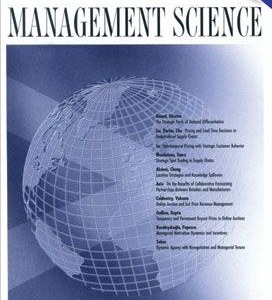
Buser, T. and Dreber, A. (2016). The Flipside of Comparative Payment Schemes Management Science, 62(9):2626--2638.
-
Affiliated author
-
Publication year2016
-
JournalManagement Science
Comparative payment schemes and tournament-style promotion mechanisms are pervasive in the workplace. We test experimentally whether they have a negative impact on people{\textquoteright}s willingness to cooperate. Participants first perform in a simple task and then participate in a public goods game. The payment scheme for the task varies across treatment groups. Compared with a piece-rate scheme, individuals in a winner-takes-all competition are significantly less cooperative in the public goods game. A lottery treatment, where the winner is decided by luck, has the same effect. In a competition treatment with feedback, winners cooperate as little as participants in the other treatments, whereas losers cooperate even less. All three treatments lead to substantial losses in the realised social surplus from the public good while having no significant impact on performance. In a complementary experiment, we aim to shed light on the psychological mechanisms behind our results.